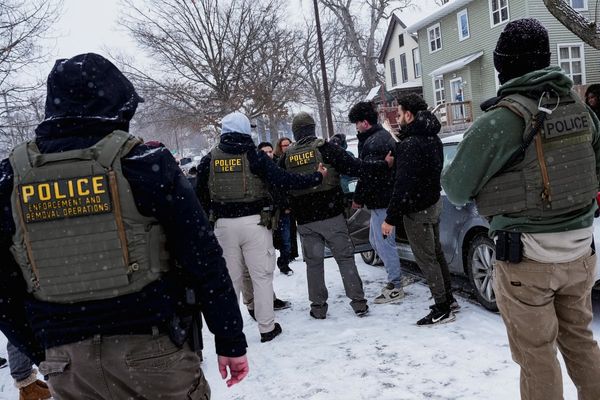The outcome of the second round of the French presidential elections on 24 April will likely hinge on voter turnout, which has been dropping - revealing a shift in how French people see voting as part of their civic engagement.
People used to vote in every election, as a sense of duty. “The duty-based vote is a vote you cast because it’s a duty towards society. And so whatever the issue, you show up to vote,” says political scientist Vincent Tiberj.
People born before WWII still have this approach, but younger generations are shifting away from the idea of voting as a duty.
Listen to an interview with Vincent Tiberj in the Spotlight on France podcast:

Presidential elections traditionally have the highest turnout of any French elections, and Sunday was no exception, with 73.69 percent of registered voters casting ballots – more than twice as many as the 33.28 percent who voted in the 2021 regional elections, and much higher than the 44.75 percent who voted in the 2020 local elections.
But this year’s first round of the presidential election drew four percent fewer people than the first round in the last election, in 2017.
Civic engagement outside the voting booth
Tiberj, who analysed generational voting in an article in a recent book, Extiction de Vote (Voting Extinction), finds that the drop in turnout is not across the board. Younger people tend to pick and choose their elections and their issues.
Duty-based voting, he says, fits in with an idea of “vertical democracy”, where the president “the big boys” decide for the people. But this is changing, in France, and all over the world. “Now citizens are challenging elites, and no longer follow their electoral proclamations.”
The Yellow Vest movement in France is a good example of this. A protest against a fuel tax hike, it turned into weekly demonstrations against Macron, and what they see as a system of political elites.
“Citizenship no longer goes only through voting,” says Tiberj. Instead, people are participating in civic life through protesting, signing petitions or participating in boycotts.
Impact of low turnout
And yet, turnout still has an impact on elections. After Sunday’s first round, when President Emmanuel Macron came in first with 27.85 percent of the vote, followed by the far right leader of the National Rally, Marine Le Pen, with 23.15 percent, the big question is what will happen to the 21.95 percent of voters who cast ballots for hard-left Jean-Luc Melenchon.
Since 2002, when Jean-Marie Le Pen made it into the second round run-off (in large part, because of low turnout on the left), parties from across the political spectrum agreed to vote against him, in what they called the ‘Republican pact’, to keep the far right away from power.
In 2017, the same thing occurred, when Marine Le Pen made it to the second round. Many voters cast a ballot for Macron, not because they supported him, but because he was not Le Pen.
The 2022 election is intensified because Macron is no longer an unknown. He has been president for five years, with all the baggage that comes with it.
“When you force people to choose by the lesser of two evils, it causes a strong stress to the utility of voting,” says Tiberj, pointing to the likelihood that many Melenchon voters will decide not to cast a ballot in the second round.
While polls show that Macron is likely to win the run-off, the fundamental problems of the value and legitimacy of voting remain, which Tiberj warns will only make the problem worse.
“If we don't address this issue, in the future we will end up with a lower and lower number of citizens voting,” he says.
Those who do vote will then decide for the majority, and “the rest of the population will probably not accept what's going on.”
Find an interview with Vicent Tiberj in the Spotlight on France podcast, episode 72. Listen here.







